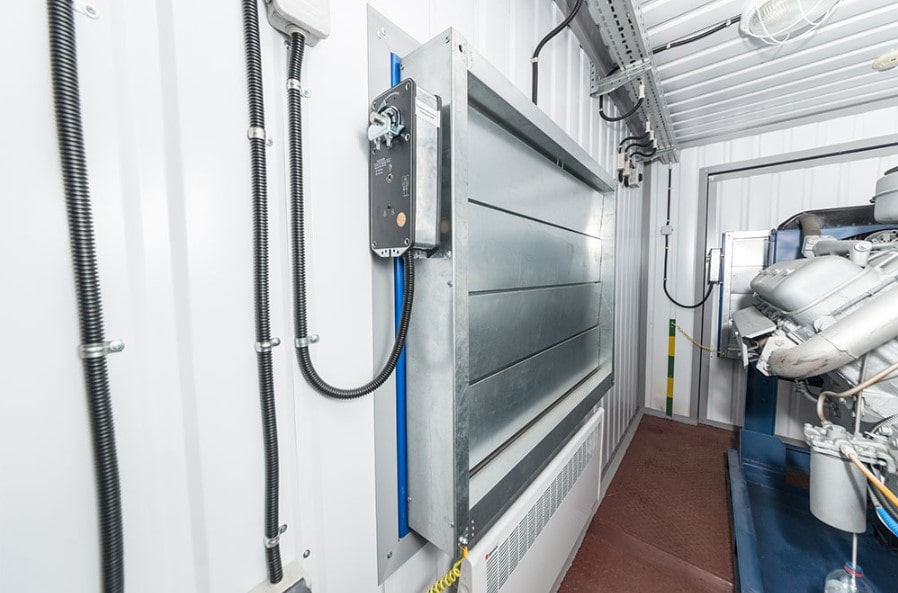
Why Do You Need A Fire Damper Inspection?
Among the various passive fire safety measures deployed within public buildings, fire dampers play a critical role. Fire dampers are safety devices installed in a building’s heating system, ventilation ducts, and air conditioning networks, and are designed to close automatically when a rise in temperature breaches a defined threshold – often due to a fire.
Fire damper designs usually include a fusible link, which is an element that melts at a specified elevated temperature, triggering the damper to close. This action holds the airflow through the ducting system and inhibits the further spread of fire and smoke. However, modern dampers do more than simply block the path of smoke and fire; they also help maintain the structural integrity of fire-resistant barriers such as walls and floors by closing off the void spaces created by the venting system.
Benefits Of Regular Fire Damper Inspections
There are several reasons why regular fire damper inspections are essential:
1. Long-Term Optional Functionality:
over time, fire dampers can become less effective due to the accumulation of dust, undetected minor mechanical faults, or damage to the fusible link. Regular inspections will detect these issues and ensure that repairs and replacements are carried out as needed before the system is called into use.
2. Early Identification Of Mechanical Failure:
Fire dampers operate through a complicated arrangement of components, featuring hinges, slides, springs, and seals. A malfunction in any of these parts can compromise the effectiveness of the damper. Regular inspections can identify these mechanical issues at an early stage, allowing prompt rectification.
3. Lower Lifetime Maintenance Costs:
identifying and addressing minor issues through regular inspections helps avoid larger and more expensive problems throughout the component’s lifetime. A regular inspection and maintenance schedule can often extend the lifespan and value of your fire dampers, yielding long-term cost savings and a lower lifetime cost of ownership.
4. Fire Safety Compliance:
Several laws and standards are applicable to fire damper safety and inspections in the UK, the most important being The Regulatory Reform (Fire Safety) Order 2005. The order places the legal responsibility for fire damper maintenance squarely on the shoulders of the employer or the business in control of the premises. This includes the requirement to carry out annual inspections and testing on all fire dampers and smoke dampers, which should be conducted by a trained and competent person. Tests and inspections should be carried out in line with BS 9999, which also stipulates fire damper testing at minimum 12 monthly intervals. Regular inspections will help you comply with these and other standards, avoiding penalties and ensuring your building remains a safe environment for its occupants.
What Next?
When used in conjunction with fire-rated ducting, fire dampers are an essential passive fire protection safeguard in a range of commercial, public, and residential buildings. Regular fire damper inspections provide a detailed understanding of their operation and the potential issues that can arise, helping you significantly reduce the risk of fire spreading through the building’s ventilation system.
At IFI Group we provide a variety of site inspections and strategic passive fire protection consultancy services. Please contact us today to find out more.

